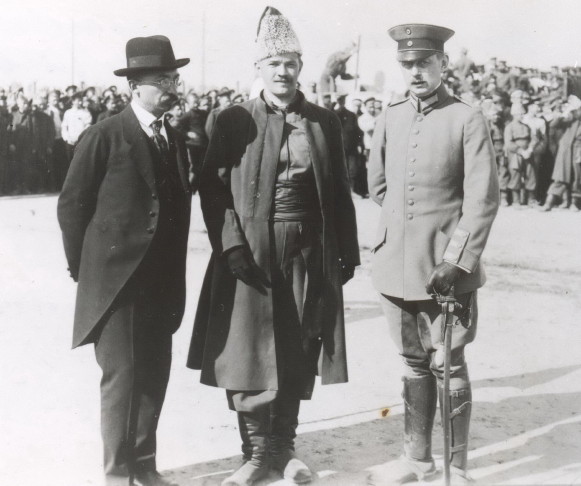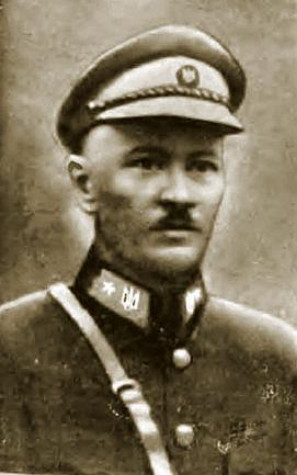Shapoval, Mykola Yu.
Shapoval, Mykola Yu. [Шаповал, Микола; Šapoval], b 17 December 1886 in Sriblianka, Bakhmut county, Katerynoslav gubernia, d 25 June 1948 in Seloncourt, Doubs, France. Military and political figure; brother and political supporter of Mykyta Shapoval. A Russian army officer from 1910, in 1915 he was wounded and captured at the East Prussian front. In a prisoner of war camp at Rastatt he founded the Zaporizka Sich cultural and educational society. After his release he organized and headed the Ukrainian Hromada in Biała Podlaska (1916–17), published the paper Ridne slovo (1917–19) there, and worked for the Union for the Liberation of Ukraine. In 1918 he helped organize the Bluecoats division of the Army of the Ukrainian National Republic and was colonel of its First Zaporozhian Regiment until late April. Under the Directory of the Ukrainian National Republic, in 1919 he commanded the Seventh Infantry Division and the Podilian Group, which later became part of the Third Iron Rifle Division of the Army of the Ukrainian National Republic. He then commanded the UNR cadet schools in Kamianets-Podilskyi, Jasło, and Stanyslaviv, where he was promoted to the rank of general. In November 1920 Shapoval and his cadets were demobilized and sent to Polish internment camps in Łańcut and Kalisz. In 1923 he fled Polish persecution to Prague, and from September 1924 he lived in Paris. From 1929 he headed the 2,000-member Ukrainian Hromada in France and edited its organs, Vistnyk (1929–37) and Ukraïns’ka volia (1938–40), in Paris. A committed democratic-socialist and antifascist publicist, he was imprisoned by the Gestapo in 1940–1, and from October 1942 until the Allied liberation of France he was forbidden to live in Paris or to have contact with Ukrainians. Shapoval wrote many political articles and a book on the problems of democracy in Tomaš Garrigue Masaryk’s works, in addition to translating Romain Rolland’s Le Jeu de l'amour et de la mort into Ukrainian. He is buried in Sochaux, France.
[This article originally appeared in the Encyclopedia of Ukraine, vol. 4 (1993).]

